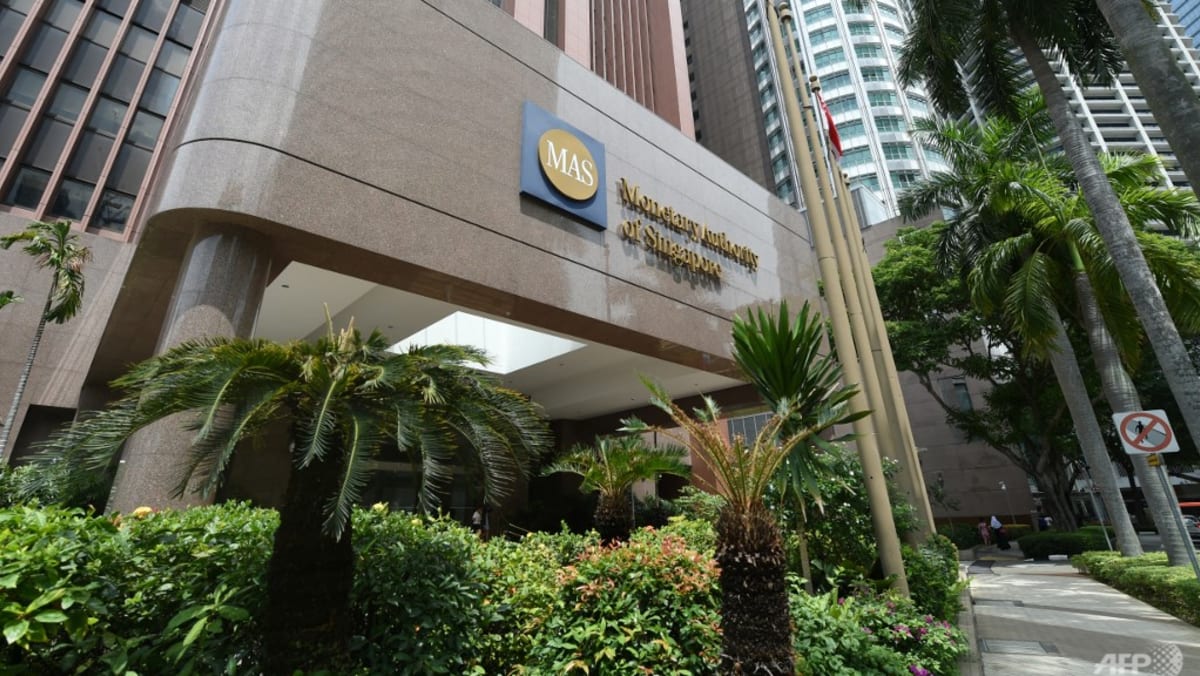MAS records loss of S$7.4 billion with inflation, rise in Singapore dollar
SINGAPORE: The Monetary Authority of Singapore (MAS) recorded a loss of S$7.4 billion in the last financial year, with lower investment gains on the country’s foreign reserves and as the Singapore dollar appreciated.
MAS managing director Ravi Menon said on Tuesday (Jul 19) that investment gains on Singapore’s foreign reserves came up to S$4 billion. But this was outweighed by a rising Singapore dollar and higher interest expenses.
The appreciation of the Singapore dollar led to a negative foreign exchange translation effect of S$8.7 billion. Total expenditure increased to S$2.8 billion, due mainly to higher interest expenses on domestic money market operations.
This led to a S$7.4 billion loss – MAS’ first since the financial year ending in March 2013. Due to the loss, MAS will not contribute to the Government’s consolidated fund, nor return profits to the Government this year.
With inflation rising, the MAS tightened monetary policy four times in the last nine months, including two off-cycle moves in January and July.
Unlike other central banks, it manages the exchange rate of the Singapore dollar instead of adjusting interest rates.
When inflationary pressures build up, MAS allows the trade-weighted exchange rate to appreciate faster, said Mr Menon. This helps to reduce imported inflation and restrain export demand.
The Singapore dollar strengthened 4 per cent against the British pound, 5 per cent against the euro, and 9 per cent against the Japanese yen.
INFLATION A KEY CHALLENGE
Import prices in Singapore surged by 27 per cent in May this year, compared to the same period last year. About 80 per cent of this was due to higher oil and food prices.
Core inflation, which excludes private transport and accommodation costs, is projected to increase to a peak of 4 to 4.5 per cent in the third quarter.
It will then level off, and slightly ease towards the end of this year, at around 3.5 to 4 per cent – much higher than what Singapore has been used to, said Mr Menon. For the whole of 2022, core inflation is forecast to come in at 3 to 4 per cent.
“If there are fresh shocks to global energy and food supplies arising from the ongoing conflict in Ukraine or a significant overheating of the domestic labour market, inflation may end up being higher and more persistent,” he said.
He highlighted inflation as the “key macroeconomic challenge” facing the global economy, with the International Monetary Fund projecting global inflation to reach 7.4 per cent – the fastest rate of inflation in the last 25 years.
This is due to a confluence of factors: A robust demand recovery post-COVID, supply-side frictions and war-related disruptions due to Russia’s invasion of Ukraine.
“FORCEFULNESS AND CALIBRATION”
The key source of inflation pressures now in most advanced economies is labour market tightness, said Mr Menon.
On the supply side, supply chain frictions began to emerge last year, even before the Russia-Ukraine conflict.
Russia and Ukraine are major producers and exporters of oil and gas, food grains and commodities. The war has also affected the supply of palladium and neon – two elements that are crucial for semiconductor production.
“In short, the Russia-Ukraine war has sharply worsened the outlook for global inflation,” said Mr Menon, who added that he expects the conflict to be “prolonged”.
Mr Menon likened taming inflation to trying to slow down a speeding car on a gentle slope.
“It takes a combination of forcefulness and calibration,” he said.
“If you do not depress the brakes early enough or hard enough, you cannot break the speed momentum – likewise, monetary policy needs to act early and decisively.
“But if you jam the brakes too hard, the car may skid or even topple over – the economy may go into a recession.”
This is why central banks tighten monetary policy in a series of “well-calibrated steps” and closely monitor the impact of their actions before deciding on the next step, he said.
THE ECONOMY IN 2023
Mr Menon said that economic growth in Singapore is expected to moderate further in 2023 in tandem with the slowdown in its major trading partners.
For now, there is no expectation of a recession or stagflation in Singapore next year. But there are “considerable downside risks in the global economy which bear close watching”, he said.
Another key challenge posed by the combination of rising prices and rising interest rates is the burden imposed on debt servicing. An increase in domestic interbank interest rates has led to a rise in lending and mortgage rates in Singapore.
Mr Menon said that domestic interest rates are expected to rise further.
“MAS is closely monitoring any systemic risk to the financial system arising from debt-related stresses in the corporate and household sectors,” he said.
Mr Menon assured that MAS subjects all major banks to rigorous stress testing to assess any vulnerabilities in their portfolios.
The corporate sector has sufficient liquidity, and stress tests on the balance sheets of Singapore-listed firms show that most would be resilient to interest rate and earnings shocks, he said.
The household debt situation in Singapore also remains generally healthy.
But Mr Menon warned that there will be a small segment of households that may be more constrained by rising interest rates.
Giving an update on the financial sector, Mr Menon said it continued to perform well in 2021.
Fintech investments hit a high of US$3.9 billion and a total of 4,300 jobs were created in financial services and fintech.
For all the latest business News Click Here

